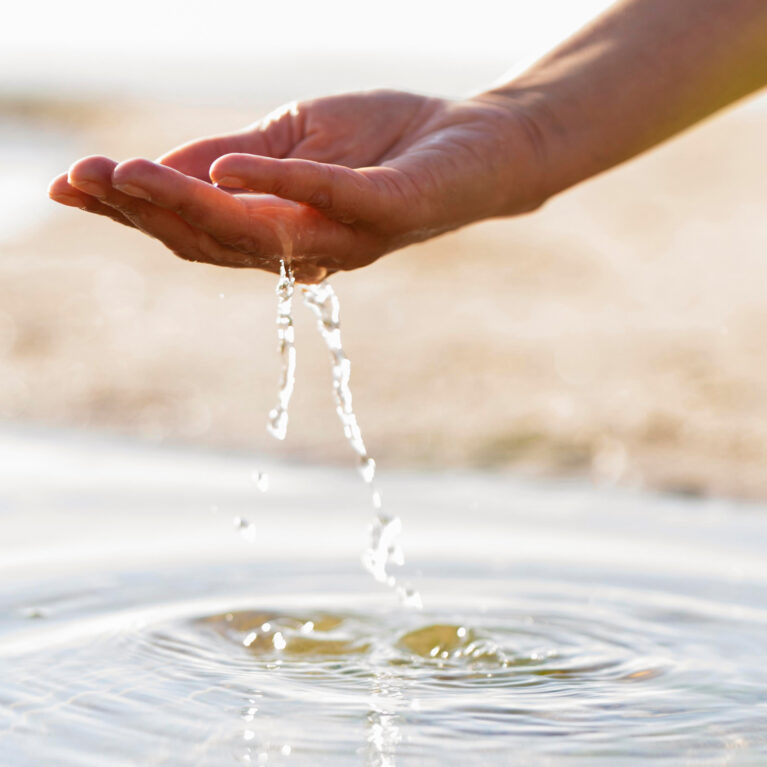Knowledge
Without water, life on Earth would not be possible. It is needed for the basic processes that take place in organisms, such as digestion and respiration.

The role of water
Water is essential for life on Earth. Appropriate water management and conservation are absolute priorities from a planetary and sustainable development perspective.
Covering more than 70 per cent of the Earth's surface, water plays a crucial role in the life of all organisms. Without it, the existence and development of any form of life on our planet would not be possible. Want to find out more? Great!
Drought - a worldwide problem
Overuse of water resources leads to depletion, which is particularly evident in arid and semi-arid regions.
The intensive abstraction of water from rivers and lakes can lead to their drying out, which has a negative impact on ecosystems. Soil erosion, a reduction in biodiversity and changes in natural hydrological cycles are just some of the consequences of this.

Fresh water is only a small part
The Earth is a water-rich planet, but only about 2.5 per cent of the planet's water supply is fresh water, accessible to humans - the rest is salt water, mainly in the oceans.
Of this small percentage of freshwater, most is frozen in glaciers and permanent ice caps, leaving only a fraction available for direct use by humans.
What can be done to protect the - already too scarce - freshwater resources? We need effectively protect them from contamination, use them sustainably and prevent excessive water abstraction.
Simply put: we should conserve water and not use it when there is no need.
How to manage water?
-
Retention
Water retention refers to the ability of soil, plants and water bodies to hold water. You can support water retention by collecting rainwater to irrigate your garden or using conservation agriculture techniques that help the soil retain water better.
-
Reduce consumption
Large amounts of water are abstracted from rivers and lakes, adding to the problem of drought. These water bodies are important for water retention and their inappropriate use leads to a deterioration of water retention in ecosystems.
-
Watering with your head
Irrigation systems often operate too inefficiently, resulting in inefficient use of water. Improved efficiency and innovative approaches to water management can significantly help to mitigate the effects of drought.
-
Modern agriculture
The use of poor methods that do not support soil water retention is also an important factor contributing to the severity of drought. Educating farmers and implementing sustainable cultivation practices can contribute to better water management.
Drought? It's around, look around!
Poland is experiencing increasingly intense and prolonged periods of drought, particularly in the eastern and central regions of the country.
Drought affects not only agriculture, but also the availability of drinking water, the health of aquatic ecosystems and energy production, especially in hydropower plants. The problem is also intensifying in the context of global warming.
-
accessibility to water
-
state of ecosystems
-
energy production
Unfair access
From a global perspective, one of the biggest problems is unequal access to water. Many regions of the world face water scarcity, leading to conflict, health problems and limiting development. Climate change and population growth exacerbate this problem, requiring global action on water conservation and management.
Water is a resource that must be protected and that we must manage responsibly to ensure its availability for present and future generations. It is a key element for environmental protection, the health of us all and sustainable development.
